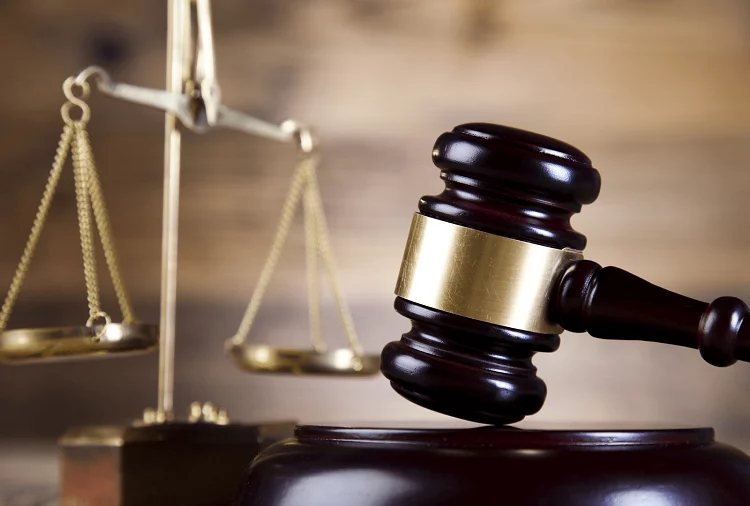With the retirement of Justices Mary Peter Odili, Amina Adamu Augie, Musa Dattijo Muhammed and the death of Justice Centus Chima Nweze, the Supreme Court was further depleted indeed.
The remaining ones complained of overwork with the expansion of their schedules to include electoral matters. Not that this is the first time the Justices are involved in resolving such issues. It is just that the manpower to handle the volume of cases emanating from that angle of justice seekers was not sufficiently available.
Nigerians, the informed and the uninformed, as one, demanded that it was long overdue for the National Judicial Council (NJC) to do part of its job of recommending candidates to fill the available vacancies.
By the provisions of the constitution as contained in Section 230 (2), the Supreme Court of Nigeria shall consist of-
The Chief Justice of Nigeria; and such number of Justices… not exceeding twenty-one (21), as may be prescribed by an Act of the National Assembly.” Presently, there are only nine Justices and the Chief Justice of Nigeria (CJN).
When the CJN acting on the recommendation of the Federal Judicial Service Commission (FJSC) which he heads, announced last week, a list of 22 Justices nominated for elevation to the Supreme Court, Nigerians heaved a sigh of relief. But since their states and zones where unveiled, what followed was akin to a bedlam. The composition of the list is still generating controversies.
According to the list, South-east has Hon Justice Nwaoma Uwa (Abia State), Hon Justice Obande Ogbuinya (Ebonyi State) and Hon Justice Anthony Ogakwu (Enugu State) on the priority list while Hon Justice Onyekachi Otisi (Abia State); Hon Justice Theresa Orji-Abadua (Imo State) and Hon Justice Chioma Nwosu-lheme (Imo State) are on the reserve list.
For the South-south, Hon Justice Moore Adumein (Bayelsa State) is on the priority list while Hon Justice Biobele Georgewill (Rivers State) is on reserve.
South-west has Hon Justice Adewale Abiru (Lagos State) as a priority nominee while Hon Justice Olubunmi Oyewole (Osun State) is on reserve.
The North-central has Hon Jummai Sankey (Plateau State), Hon Justice Stephen Adah (Kogi State) and Hon Justice Baba Idris (Niger State) on the priority list just as Hon Justice Muhammad Ibrahim Sirajo (Plateau); Hon Justice Ridman Maiwada Abdullahi (Nasarawa State) and Hon Justice Joseph Ikyegh (Benue State) are on reserve.
By the provisions of the list of nominees, North-east has Hon Justice Haruna Simon Tsammani (Bauchi State) as the priority candidate and Hon Justice Abubakar Talba (Adamawa State) on the reserve bench.
The North-west geopolitical zone has Hon Justice Muhammad Lawal Shuaibu (Jigawa State) and Hon Justice Abubakar Sadiq Umar (Kebbi State) on the priority list while Hon Justice Bello Aliyu (Zamfara State) and Hon Justice Abdullahi Mahmud Bayero (Kano State) are on reserve.
Part of the concern is the criteria for nominating the candidates especially the zonal distribution of the nominees. The view has been expressed that the age-long criterion of seniority at the bench was not observed. To classify some nominees as ‘priority’ and others as ‘reserve’ – even those that had been prioritised in nominations a few years ago – is troubling. And to make matters worse, seniority has been bypassed in some instances, while some states have even assumed the status of regional monopoly.
Until recently Lagos, for instance, had two serving justices at the apex court and could retain that number if the ‘priority’ nominee goes through; while Osun – also in the Southwest, has not produced a jurist in the Supreme Court for the past 20 years.
In our view the concern that politics and religion have adversely impacted appointments to the court appears borne out by the recent nominations by the FJSC. That is sad and regrettable, especially in the light of the criticisms the court has faced recently, howbeit undeserved in a few cases.
The procedure for deciding who should join the judiciary and, particularly the apex court, deserves to be more careful and painstaking devoid of primordial sentiments.
We are of the opinion that diligent consideration ought to be applied in the choice of those who hold extraordinary powers such as is the case with our justices.
Above everything else, a judge, as a judicial officer, must be above board. This requires that any occupant of that office must be of unimpeachable integrity; his or her level of competence beyond reproach. For the avoidance of doubt, we are not asking for perfection, but a minimum quality of uprightness, untainted by base sentiments.
As a newspaper, we have come to assume that judges are strict on matters of law as far as cases before them are concerned. To that extent, therefore, all we seek are credible personalities who, like the blind-folded lady, will dispense justice in all fairness, equity and good conscience.
Fortunately, it’s not late for the right thing to be done.





